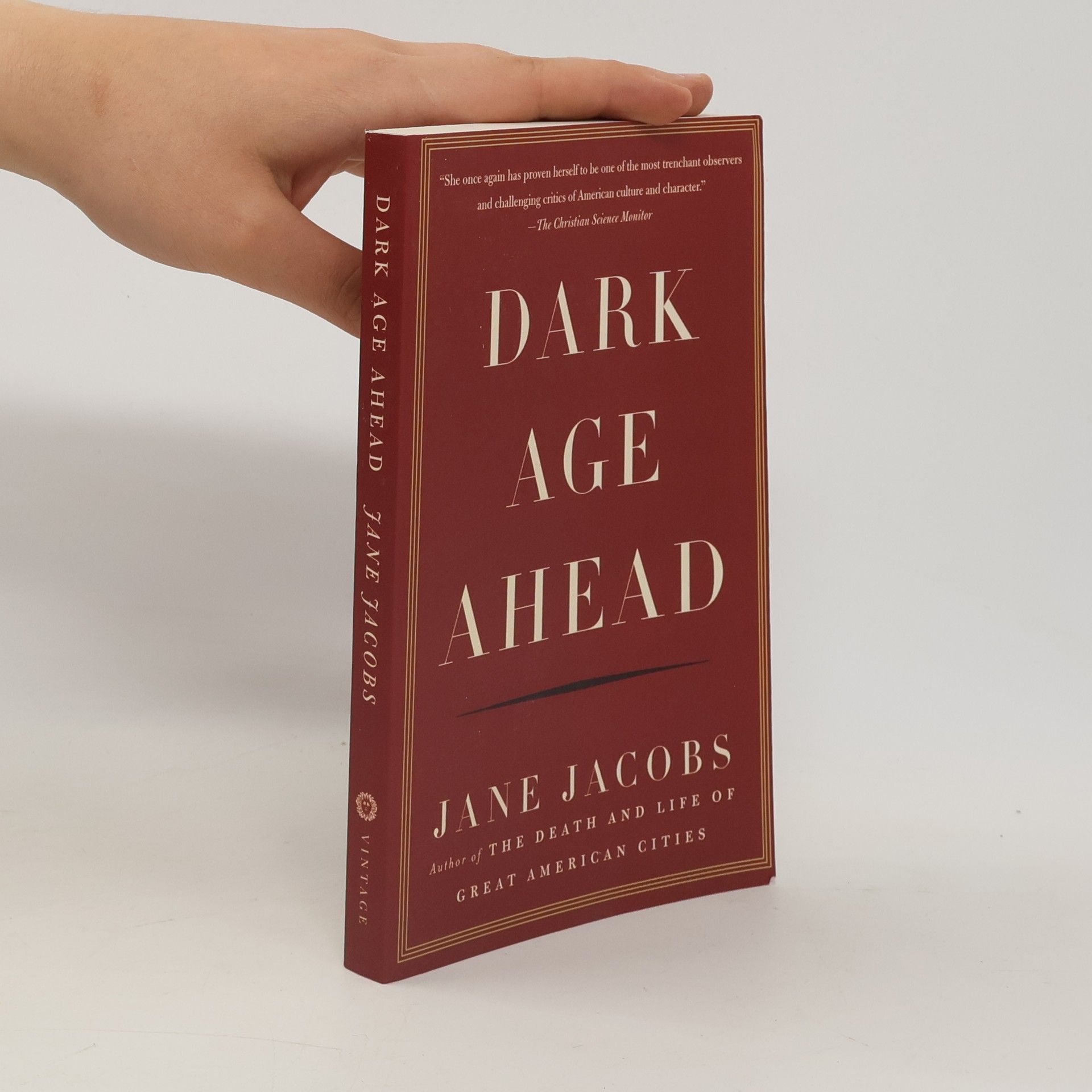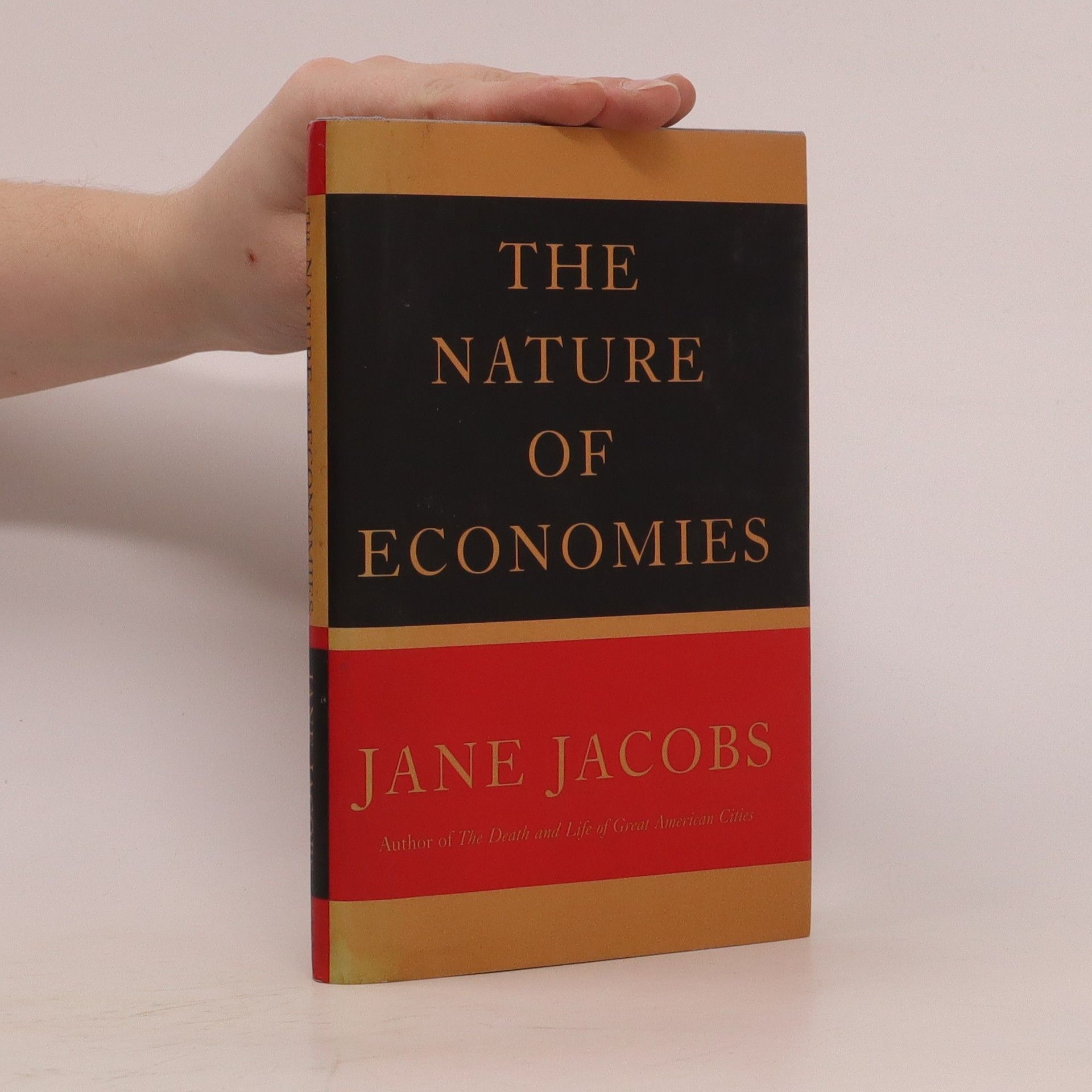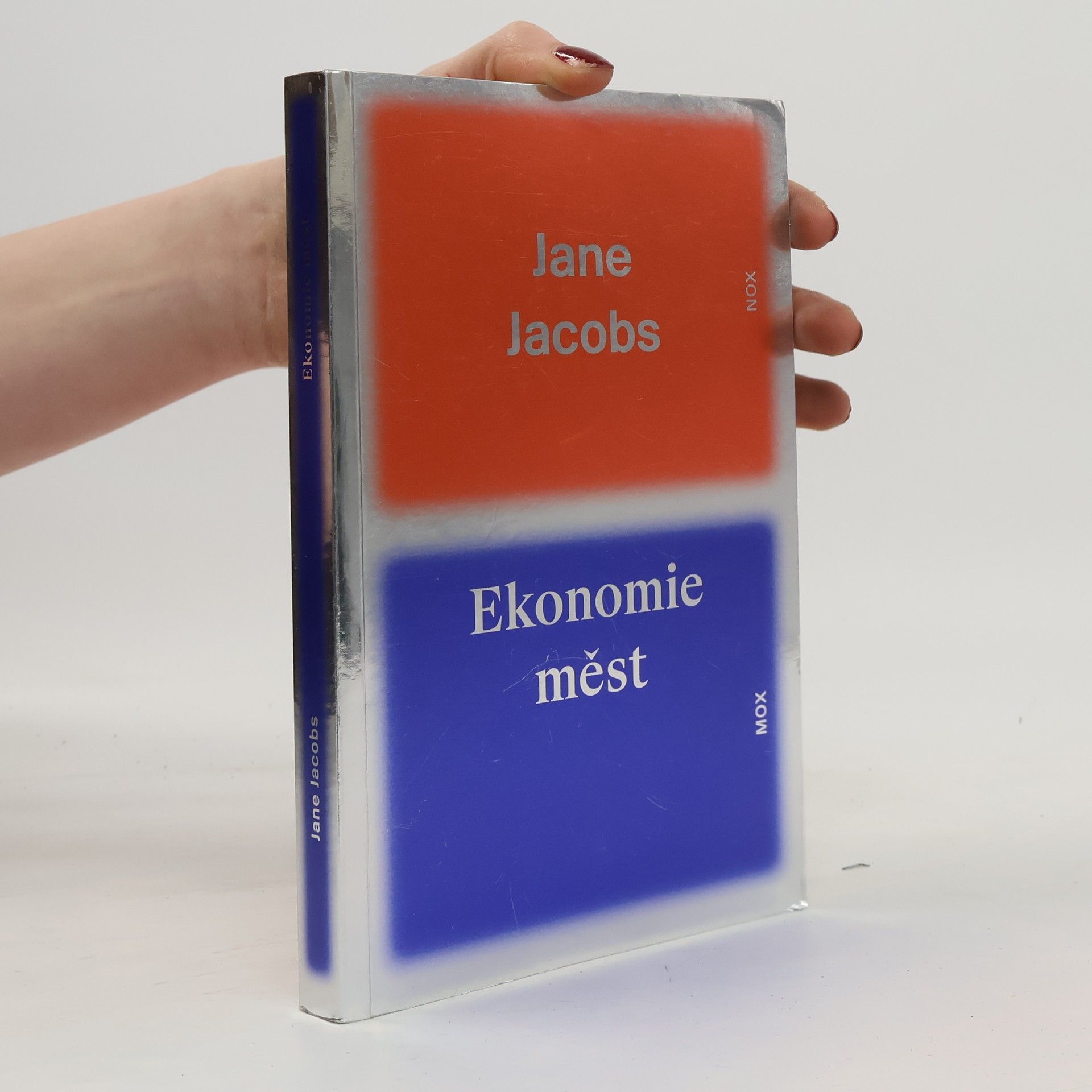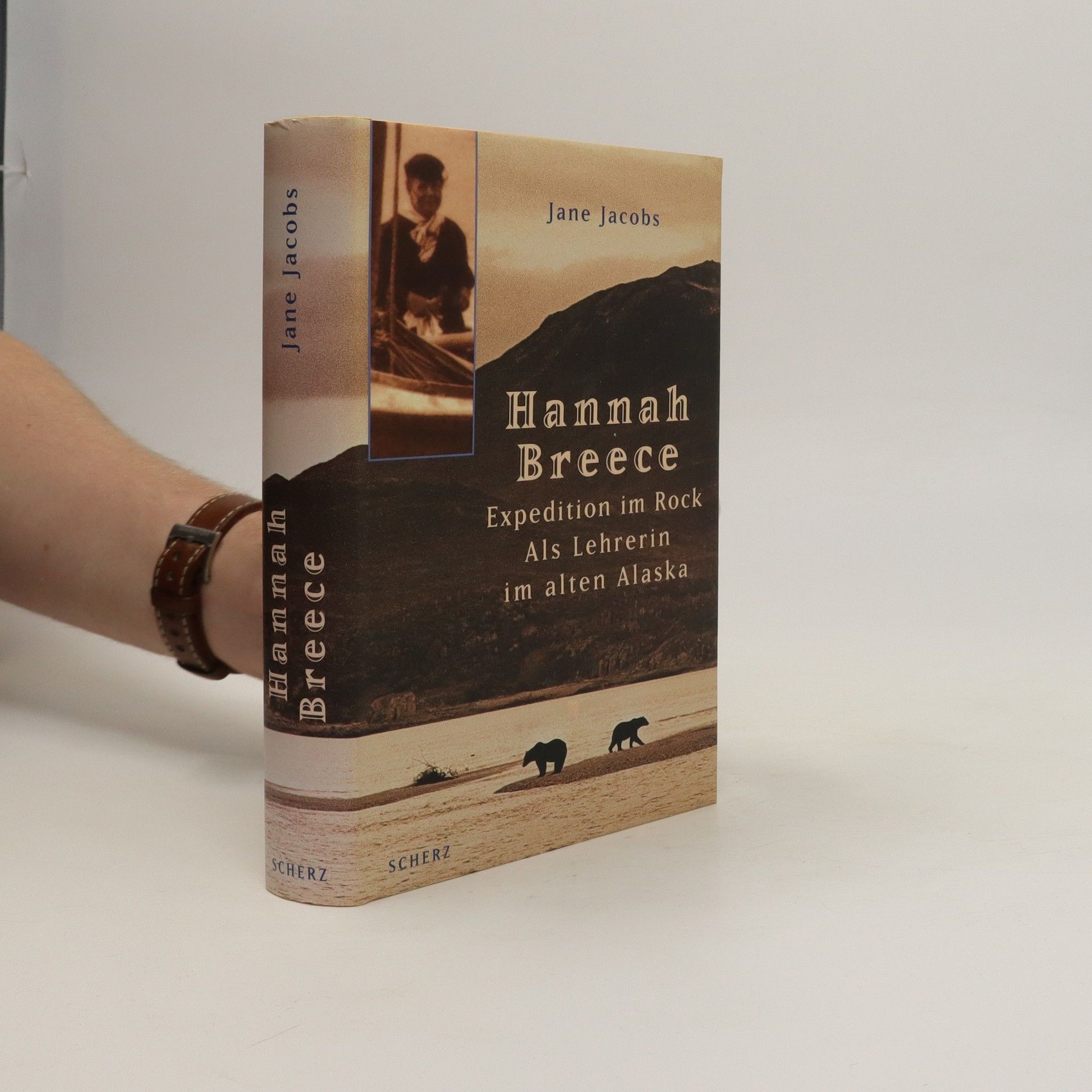V této knize rozvíjí Jane Jacobs myšlenku města jakožto hlavního hybatele pokroku a motoru rozvoje. Zavrhuje stagnaci, propaguje vynalézavost, inovace a dokonce i improvizaci jako lék na ekonomické problémy. Město je podle ní místo, které rozmanitost a proměnlivost podporuje, a kde vzájemně propletené vazby a aktivity vedou ke vzniku podniků, které na tuto proměnlivost reagují a vytvářejí ekonomický systém. Autorka tak bourá vžité představy o národním státu jakožto hlavním hráči na poli světového hospodářství. Tato kniha představuje pro ekonomii totéž, co pro moderní rozvoj měst znamená autorčino nejznámější dílo Smrt a život amerických velkoměst.
Jane Jacobs Knihy
Jane Jacobs byla americko-kanadská spisovatelka a aktivistka, jejíž primární zájem spočíval v komunitách, urbanismu a městském úpadku. Její nejslavnější dílo je silnou kritikou politik obnovy měst v polovině 20. století, která ovlivnila nejen obor plánování, ale i ducha doby. Kromě svých literárních děl byla Jacobs také známá organizováním hnutí zdola s cílem blokovat projekty obnovy měst, které by zničily místní čtvrti. Byla klíčovou postavou při rušení rozsáhlých dopravních projektů, které ohrožovaly charakter měst.







Smrt a život amerických velkoměst
- 479 stránek
- 17 hodin čtení
Stěžejní dílo věhlasné americko-kanadské spisovatelky Jane Jacobs nesmí chybět v knihovně žádného odborníka zabývajícího se rozvojem měst. Pro svou čtivost je však kniha oblíbená také u laické veřejnosti. Bezpochyby jedna z nejdůležitějších a nejvlivnějších publikací o urbanismu a plánování měst vůbec představuje silnou opozici k modernistickým teoriím padesátých let. Jejich uvedení v praxi totiž podle autorky ničí komunity a vytváří izolované a nepřirozené městské prostory. Jacobs naopak prosazuje zrušení zónování a obnovení volného trhu, což podle ní vyústí v živé, hustě zastavěné čtvrti se smíšenými funkcemi.
Proč některá města bohatnou, zatímco jiná chudnou, a jak jejich růst či úpadek ovlivňuje celou ekonomiku? Právě těmito otázkami se zabývá jedna z nejdůležitějších knih americko-kanadské autorky, uznávané především za své teorie v oblasti rozvoje měst a komunit. V Ekonomii měst přichází Jane Jacobs s myšlenkou, že jsou to právě města, co nejvíce hýbe ekonomickým rozvojem. Dřívější téma měst a jejich rozvoje nyní autorka analyzuje spíše z pohledu ekonomických procesů, které ve městech probíhají a zároveň tak upozorňuje na důležitou a přitom opomíjenou provázanost urbánního a ekonomického vývoje.
Jane Jacobs: The Last Interview
- 128 stránek
- 5 hodin čtení
“Jane Jacobs is the kind of writer who produces in her readers such changed ways of looking at the world that she becomes an oracle, or final authority.” —The New York SunHailed by the New York Times Book Review as “perhaps the single most influential work in the history of town planning,” Jane Jacobs’s The Death and Life of Great American Cities was instantly recognized as a masterpiece upon its publication in 1961. In the decades that followed, Jacobs remained a brilliant and revered commentator on architecture, urban life, and economics until her death in 2006. These interviews capture Jacobs at her very best and are an essential reminder of why Jacobs was—and remains—unrivaled in her analyses and her ability to cut through cant and received wisdom.
"Nearly forty years after The Death and Life of Great American Cities changed the field of urban studies, Jane Jacobs brings us a modern classic on economies and ecology. This new book looks at the connection between the economy and nature, arguing that the principles of development, common to both systems, are the proper subject of economic study." "The Nature of Economics is written in the form of a Platonic dialogue, a conversation over coffee among five contemporary New Yorkers. The question they discuss is: Does economic life obey the same rules as those governing the systems in nature? For example, can the way fields and forests maximize their intakes and uses of sunlight teach us something about how economies expand wealth and jobs and can do this in environmentally beneficial ways? The underlying question is both simple and profound, and the answers that emerge will shape the way people think about how economies really work."--Jacket
In this indispensable book, urban visionary Jane Jacobs argues that as agrarianism gives way to a technology-based future, we’re at risk of cultural collapse. Jacobs—renowned author of The Death and Life of Great American Cities and The Economy of Cities —pinpoints five pillars of our culture that are in serious community and family; higher education; the effective practice of science; taxation, and government; and the self-regulation of the learned professions. The corrosion of these pillars, Jacobs argues, is linked to societal ills such as environmental crisis, racism, and the growing gulf between rich and poor.But this is a hopeful book as well as a warning. Drawing on a vast frame of reference—from fifteenth-century Chinese shipbuilding to Ireland’s cultural rebirth—Jacobs suggests how the cycles of decay can be arrested and our way of life renewed. Invigorating and accessible, Dark Age Ahead is not only the crowning achievement of Jane Jacobs’ career, but one of the most important works of our time.
Hannah Breece
- 319 stránek
- 12 hodin čtení

